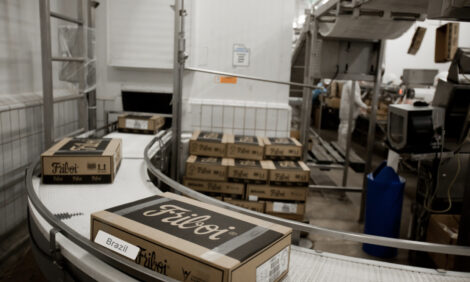



Agricultural G-20 Bids to Revive WTO Negotiations
GLOBAL - The Group of 20 (G-20) developing countries, an alliance in the WTO agriculture talks, have put forward two new proposals in a bid to further the Doha Round negotiations.Last week chairperson John Adank, New Zealand’s ambassador, called the meeting so that members could share information on their discussions since the last meeting in March.
He said that after a lull in the talks, delegations’ willingness to examine the new proposals will mean a greater engagement by negotiators, which has been absent for some time.
One of the proposals is a draft “understanding” on the administration of tariff quotas — how imports within the quotas are shared among importers, when duties inside the quotas are lower than on quantities outside.
Brazil, the group’s coordinator, told an informal negotiations meeting that the G-20 considers this to be a subject that could be settled ahead of a fuller agreement on the whole Doha Round package.
The other is a call for new Secretariat studies on tariff quota administration and on export subsidies and other forms of export competition — export credit and insurance, state trading enterprises and food aid, which can all involve hidden export subsidies.
Brazil said that the G-20’s members have been working on new ideas since agriculture negotiators last met in March.
They had only just agreed on the text to submit even though Beijing was still examining the tariff quota administration draft. The proposals are still evolving but the group said it felt it should present something to start with, Brazil said.
Speaking for itself Brazil added that it considers export competition and the linked issue of cotton subsidies to be other contenders for subjects that could be agreed early.
It also said it is looking at ways of moving the negotiations forward on issues related to agriculture but in other committees:
- Ad hoc mediation in the Sanitary and Phytosanitary Measures (SPS) Committee, a proposal to enhance procedures for the SP chairperson to help broker solutions to problems members have with each other’s measures and avoid bringing legal disputes against each other
- Provisions on perishable products in the trade facilitation negotiations, so that they are handled quickly in customs and other official procedures, and avoiding deterioration.
Because the proposals were only circulated at the beginning of the meeting, most members said they still needed time to study them before responding properly.
Most also said they are committed to finding ways to move the talks forward, and would therefore respond seriously.
In their preliminary responses, some questioned the selection of issues that could be candidates for early agreement, such as tariff quota administration and export competition. They said these are part of the December 2008 draft “modalities”, which contains a considerable amount of agreement based on a balance of issues. The balance could be upset if these issues were isolated, they said.
Brazil said the approach should not be challenged since ministers had instructed their negotiators to look for potential “early harvest” subjects.









